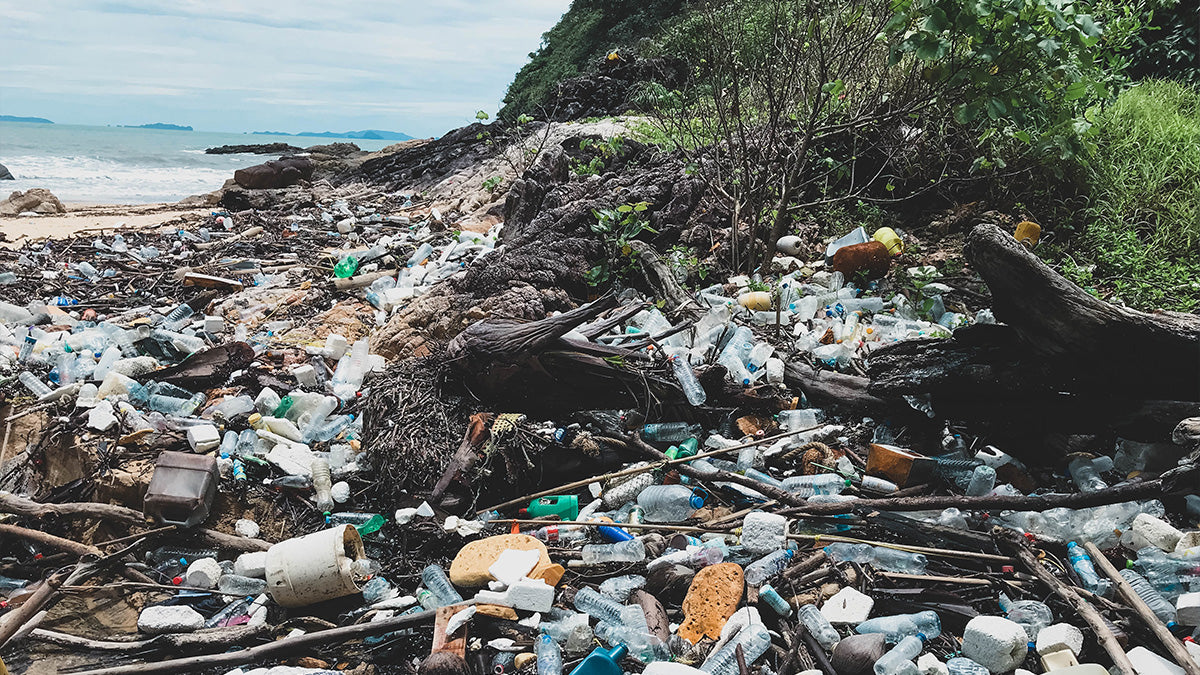"The 2-Minute Read" is a new series where we discuss new ideas or counterintuitive thoughts on today's plastic pollution crisis. By no means is it comprehensive coverage of the issues, instead it serves to stir up new ideas and constructive conversation.
Cancel culture is slowing brand adoption of circular solutions. Here’s how we move forward.
If you were a fly on the wall at Oceanworks HQ you’d be encouraged by the breadth of organizations that are sincerely interested in reducing their plastic footprint. Unfortunately, it is not uncommon for a segment of these conversations to flip quickly; from enthusiasm to hesitation or cynicism. And, while the flood of virgin plastic production continues to accelerate, it feels as though the progress being made on the plastic waste crisis is only trickling forward.
There are many reasons why brands are stumbling in their attempts to adopt viable virgin plastic reduction solutions. Organizations are complex (this complexity systematically increases with company size) and internal incentives don’t always reinforce sustainable decision making, but one of the biggest barriers to commercializing viable plastic action campaigns is a bit unexpected and counter intuitive: cancel culture.
Increasingly ever-present, cancel culture has shifted to the center of public discourse and, oddly enough, it plays a major role here in the sustainability space. Logic would lead you to believe that increased scrutinization, specifically around corporate social responsibility (CSR), would result in organizations moving more rapidly on sustainable business solutions. But the opposite has shown to also be true. Time and time again, we’ve experienced brands wary that any steps, small or large may be deemed insufficient by the public and that by even slightly opening ‘Pandora's box’ (as it has been referred to) can tempt the cancel culture machine. Unfortunately history shows the brand owners are not ENTIRELY wrong for this belief.
In recent years, numerous high-profile brands have been the subject of accusations of greenwashing by journalists and consumers alike. True, some are wholly warranted cases where brands are guilty of intentional deception. But many cases are less clear, with backlash focused around inaccurate marketing semantics, mostly generated from naivety, not mal-intent (For example, marketing teams inexperienced in sustainability use terms like “Ocean Plastic” when referring to what is actually Ocean-Bound Plastic). Such is the case, when well-meaning brands are faced with fear of continued backlash, it is simply easier to terminate what can otherwise be meaningful initiatives. For onlooking brands, this can be enough to never begin in the first place.
Let’s be clear: fear is not a valid excuse for brands to defer action. Greenwashing accusations are the result not of “baby steps” by plastic producers, but baby steps being made in the absence of real facts or a larger, communicated vision for sustainability.
At Oceanworks we’re proposing a collective mindset shift of embracing what might be considered imperfect solutions in the name of progress. Where organizations swap perfection for what might be considered radical transparency and consumers afford brands the latitude to make mistakes along their sustainability journey. For companies with name-brand products, deferring responsibility for their plastic footprint jeopardizes the long-term reputation, value, and consumer reach of their brands. Brands taking the first steps toward reducing their plastic footprint, contributing to plastic pollution clean-up, and creating honest communications frameworks will ultimately win customer loyalty.
Consumers play a vital role in supporting innovation and progress in the plastic industry. How? They can choose to purchase brands that are taking the plastic crisis seriously through clear and articulate strategies. By choosing to purchase from brands that prioritize plastic action, have a plan to scale up their participation in a circular plastic economy, or are funding the collection and removal of plastic waste from our lands, seas, and communities, consumers can cast their votes in favor of a circular plastic economy.
The brands who are out in front will be bound to stumble along the way, but we hope collectively we can hit pause before leaping to “cancel” brands for missteps. It’s not possible to solve the plastic pollution crisis overnight. Instead, it will take all of us embracing imperfect solutions as we work toward solving the plastic problem in the long run.
